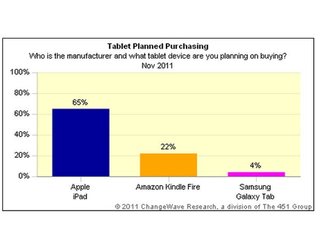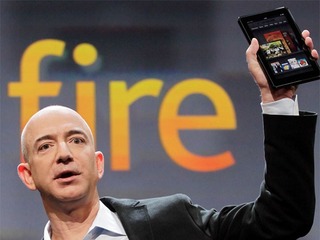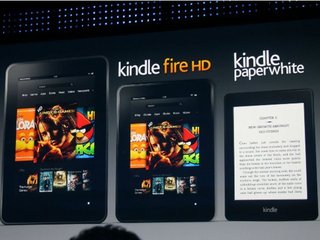DUOS expands AI capabilities to help seniors apply for assistance programs
It will complete and submit forms, and integrate with state benefit systems
Read more...
Updated to reflect comment from Microsoft
Amazon is making everyone sit up and take notice with its recently announced array of new Kindles. On Thursday, it unveiled a whole family of new Kindle Fires, including the Kindle Fire HD, as well as a new Kindle e-reader, and new Kindle features.
For all the hoopla, there is something a little odd about the new Kindle Fires: the tablets may run on Google’s Android operating system… yet the default search engine on the device will be Microsoft’s Bing, instead of Google.
While no official confirmation of this has been offered yet, Amazon and Microsoft have confirmed it to various news outlets.
Getting its search engine onto the Kindle Fire is a huge coup for Microsoft. Collosal. Enormous. Gigantic. Giant.
Ok, that’s enough adjectives. But it really cannot be understated how important this news is.
Let’s put this in perspective: In August, a week before it revealed the new Kindle Fire, Amazon announced that the old Kindle Fire completely sold out. As in, there were no Kindle Fires left to buy.
The Kindle Fire was released in November 2011, and immediately became Apple’s chief rival for control of the tablet market. Within a week it was the No. 2 tablet on the market, with ad growth in its first month outpacing that of the iPad during its initial launch in 2010. In April, a comScore report found that the Kindle Fire accounted for 54.4% of the Android tablet market, nearly double the 29.4% share it had in December 2011.
Amazon crushed the competition so badly it was barely even a fight. The Kindle Fire’s biggest rival was the Samsung Galaxy Tab Family, which held 15.4% of the market.
Having its search engine on the most popular Android device will be a big boost to getting more people to use Bing. And Microsoft could use the help.
Microsoft vs. Google
According to the latest comScore report on search engine rankings, Google is far outpacing the competition. In July, Google had 66.8% of the U.S. core search market share, with nearly 12,000 searches.
The good news for Microsoft is that it placed second. The bad news is that it was far, far behind, with less than 3,000 searches and 15.7% of the market.
In an effort to close that gap, Microsoft recently launched its Bing It On challenge, where users enter five different searches. The results of each search are displayed, and the user has to choose which one they prefer without knowing if they are choosing the Bing or Google results. Pages can also be declared a draw.
According to Microsoft, “people chose Bing web search results over Google nearly 2 to 1.”
(I took the test and I chose Bing four out of five times, with the fifth page being a draw.)
While a neat gimmick, the Bing It On challenge will probably do little to get more people to use the service. Having it come as the default on the new Kindle Fire, on the other hand, will go a long way to making Bing a true competitor to Google.
"Bing is committed to delivering a multi-platform strategy to better meet the needs of our customers, including the new Kindle Fire devices. The mobile and tablet space is increasingly important, and Bing’s mobile search strategy remains focused on enabling customers to easily discover, access, and use the information, answers and local content they need and want – anytime and anywhere with the convenience of their mobile device," a Microsoft spokesperson told VatorNews.
Microsoft would not comment on the terms of the deal that it made with Amazon.
Amazon and Google could not be reached for comment.
(Image source: seo-package.co.uk)
It will complete and submit forms, and integrate with state benefit systems
Read more...The bill would require a report on how these industries use AI to valuate homes and underwrite loans
Read more...The artists wrote an open letter accusing OpenAI of misleading and using them
Read more...





